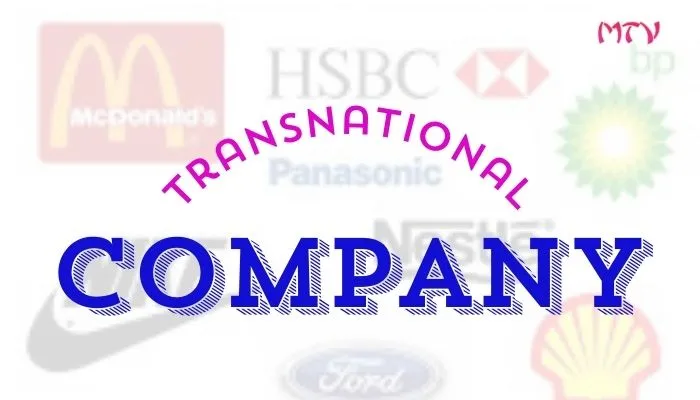Transnational company definition: We explain what a transnational company is, its characteristics and various examples. Also, the arguments for and against these companies.
What is a transnational company?
A transnational company or international company is a large corporation that carries out its production, distribution and marketing activities of goods and services beyond the borders of the country of its founding. This means that as an organization it can be spread across very different geographies, thus taking advantage of the advantages of producing in different countries, given the labor and financial inequalities on the planet.
Transnational companies are a phenomenon typical of economic globalization, appearing for the first time around the 18th century, during the mercantilist expansion of the imperial powers of Europe towards Asia, Africa and Oceania. However, its peak occurred in the second half of the 20th century, and was focused on the United States.
Given their enormous economic and financial capacity, which in many cases allows them to manage budgets greater than the GDP of many countries, transnational companies are an important contemporary economic actor, capable of influencing global markets as well as the decisions of local governments and regional. For this reason, they have numerous detractors and defenders, and are considered a reflection of the virtues and risks of productive globalization. Know quickly: Tangible Cultural Heritage such as physical or artefacts
Characteristics of a transnational company

Transnational companies are characterized by the following:
- Although they are founded in a specific country, they have a presence in numerous foreign territories, either through subsidiary companies, franchises or secondary headquarters dependent on the main one.
- They are dedicated to different areas that range from the offer of technological goods and services, to the manufacturing and marketing of personal consumer goods, such as clothing, footwear, household appliances, cell phones, among others.
- They are large corporations, with thousands of employees in their different headquarters, that grow through mergers and acquisitions with other similar companies.
- They operate internationally, taking advantage of the comparative advantages of operating in different regions of the world.
Differences between transnational and multinational company
There is no consensus regarding what differentiates a multinational company from a transnational company, and there are those who claim that they are two different terms to define the same thing.
On the other hand, it is possible to distinguish between international companies that distribute their productive apparatus (such as factories or warehouses) in different parts of the world, and those that use their capital to found subsidiary companies or associated companies that are dedicated to an autonomous field, although under the aegis of the original company. Some sources affirm that the first case would be that of a multinational company, while the second would be that of a transnational company.
If so, transnational companies would be a less centralized model of multinational company. Quick Know: What is the meaning of Mass Media?
Criticisms and arguments in favor
Transnational companies receive numerous criticisms and also have defenders who consider them a vital element for global development. Some are:
Critics
- They exploit local workers, using cheap labor and often lax labor laws, to maximize their production.
- They compete unfairly with local producers and establish international monopolies that concentrate wealth.
- They are often responsible for ecological and economic disasters at a local level, without taking responsibility towards the world.
- They promote global economic inequality, since their profits always go to their country of origin.
- They exert an influence that is difficult to combat in local governments, which encourages corruption and impoverishes the quality of life of the people.
Arguments in favor
- They provide employment to large populations in depressed or low-income nations, which contributes to reducing unemployment.
- They promote technological transfer and industrial development in third world nations.
- They are important sponsors of scientific-technological research, as well as sporting, cultural and social events at an international level.
- They promote the global free market and the international flow of services and goods.
Examples of transnational companies
Some examples of transnational companies are:
- Nestlé: It is a company of Swiss origin dedicated to producing processed foods, culinary ingredients and sweets. It has 98% of its stores, 91% of its total assets, and 97% of its workforce in foreign nations.
- Procter & Gamble: It is an American company founded in 1837 that is dedicated to the production of various goods, such as pet food, personal hygiene items or household cleaning items. It has a presence in almost 160 countries and is the owner and marketer of almost 300 international brands, such as “Gillette” or “Tampax”.
- PepsiCo: It is an American company dedicated to the field of beverages and snacks, it is famous for its brand of products “Pepsi”, and for being the great competitor of “Coca-cola”. It is present in more than 200 countries through a system of subsidiary companies.
- Bayer: It is a German pharmaceutical company and famous in the world for its original brand of aspirin. This corporation was part of the German conglomerate IG Farben until the end of World War II. Today it consists of a group of associated companies with headquarters in numerous countries around the world.
- Huawei: It is a Chinese technology and telecommunications company based in Shenzhen. It was founded in 1987 and since then it has deployed its products in more than 170 countries and has offices in different countries in Latin America and Asia.
